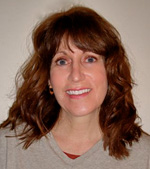Column: Life’s Wake-Up Call
If I had thought about my brother yesterday, I might have pictured him walking home from work, or barbecuing in his backyard in Colorado, or standing there with that familiar smirk, ready to spew some sarcasm.
But most likely I didn’t think about him at all. Yesterday – as far as I knew – all was right in his world.
The news was delivered with one fast pitch. There was no “I’m not feeling well” one week followed by “I’m going in for tests” the next, before moving on to “They think it might be bad news; I’ll know in a few days.”
Just: Prostate cancer. Stage 4. Nothing they can do.
“We’re all going to die,” he said. “It’s just a matter of when.”
His matter-of-fact tone helped settle my racing heart. Yeah, I agreed. We’re all going to die sometime of something. But who would have thought my brother – the oldest of us seven kids – might die before our mother?
He almost took very good care of himself; almost followed all of the Mayo Clinic’s seven steps to reduce your risk of cancer. He was an active, non-smoking guy who kept his weight down. But he didn’t like going to the doctor and hadn’t had a physical in years. It was only two months ago when it hurt to walk that he went for a check-up. What he figured was arthritis was prostate cancer that had spread to his bones, ribs, and pelvis.
Nobody deserves cancer, and often there is little anyone can do no matter what. Still, we hope this is a lesson for our brothers and friends and all those who postpone doctor visits. Go anyhow.
A prostate checkup could have caught the cancer in its earliest stage and treated it. The same test taken to reveal a soaring PSA level could have prolonged his life if taken before it was too late.
Doctors won’t estimate how much time he has left. About one in three patients with advanced prostate cancer will live for more than five years after the diagnosis. On average, patients with metastatic prostate cancer may see some response to treatment for about 15 months, with the average survival after that about two years.
About one in six men will be diagnosed with prostate cancer, which is the second leading cause of cancer death in American men, behind lung cancer.
The painkillers make my brother feel lethargic, and we can’t help but wonder: How much time does he have? How bad will this get?
“I’ve accepted it,” said my brother, who is 62. “I’m just taking it one day at a time.”
You know how it is with siblings. Get them together, and they all fall into their role. Jokester. Scatterbrain. The quiet one. My brother has been the quintessential oldest child: bossy and forever worried about the rest of us.
Now it’s our turn to do what little we can for him. We’re all calling more often, looking into tickets to Denver, forgiving petty old grievances. I tell him about a New York Times blog written by a man diagnosed with stage 3 prostate cancer two years ago, and wonder if he can somehow connect with others in Boulder going through the same thing.
I think back on his life, and all the things he worried about, from the trivial to the life-changing biggies. “Vanity, vanity. All is vanity.” Very little of it matters now. The ups and downs of the stock market? Yawn. Those pesky daily annoyances? What difference did they make?
Richard Carlson, author of “Don’t Sweat the Small Stuff,” died without warning of a pulmonary embolism at the age of 45. I hope he lived what he wrote and actually focused on the big stuff.
News of another person’s mortality is a useful – if fleeting – wake-up call for the rest of us to live well. In some cases, it also reminds us that it’s OK to pester a loved one to go ahead and make that appointment. Better to be an annoying nag than to end up thinking: “If only …”
About the author: Jo Mathis is an Ann Arbor-based writer. Her columns appear monthly in The Chronicle.





To be blindsided makes one feel numb and it feels as if the world has stopped. Well, it has in a way, in order for you to reprioritize and do what is now more important. Good luck and prayers go with you and your family.
I am so sorry.
Jo, As you so correctly write, a cancer diagnosis turns your world upside down and inside out, but it also gives us a chance to re-prioritize, drop the baggage and live like we mean it. My thoughts and prayers are with you, your brother and your family.
Recommendation: Go to the nearest National Cancer Institute recognized Comprehensive Cancer Center for advise, second opinions, course of action, etc. The CCC may be a teaching medical college and will have the best and most current data. Stage IV / D2 disease may not be curable at this time but it can be controlled and maybe science can provide more quality life for many years.
I’m so sorry for the pain your family is going through. I strongly recommend that your brother and family checks out an organization called “Imerman Angels”. They individually match “cancer fighters” with people who have the same type and stage of cancer. They also match family members to people who have “been there”. Sometimes talking to someone who has been in your shoes can mean more than all the medical information in the world. We have witnessed the benefits of “Angels” personally – as the cancer “fighter” and the cancer “survivor”. Their website is “www.imermanangels.org”.